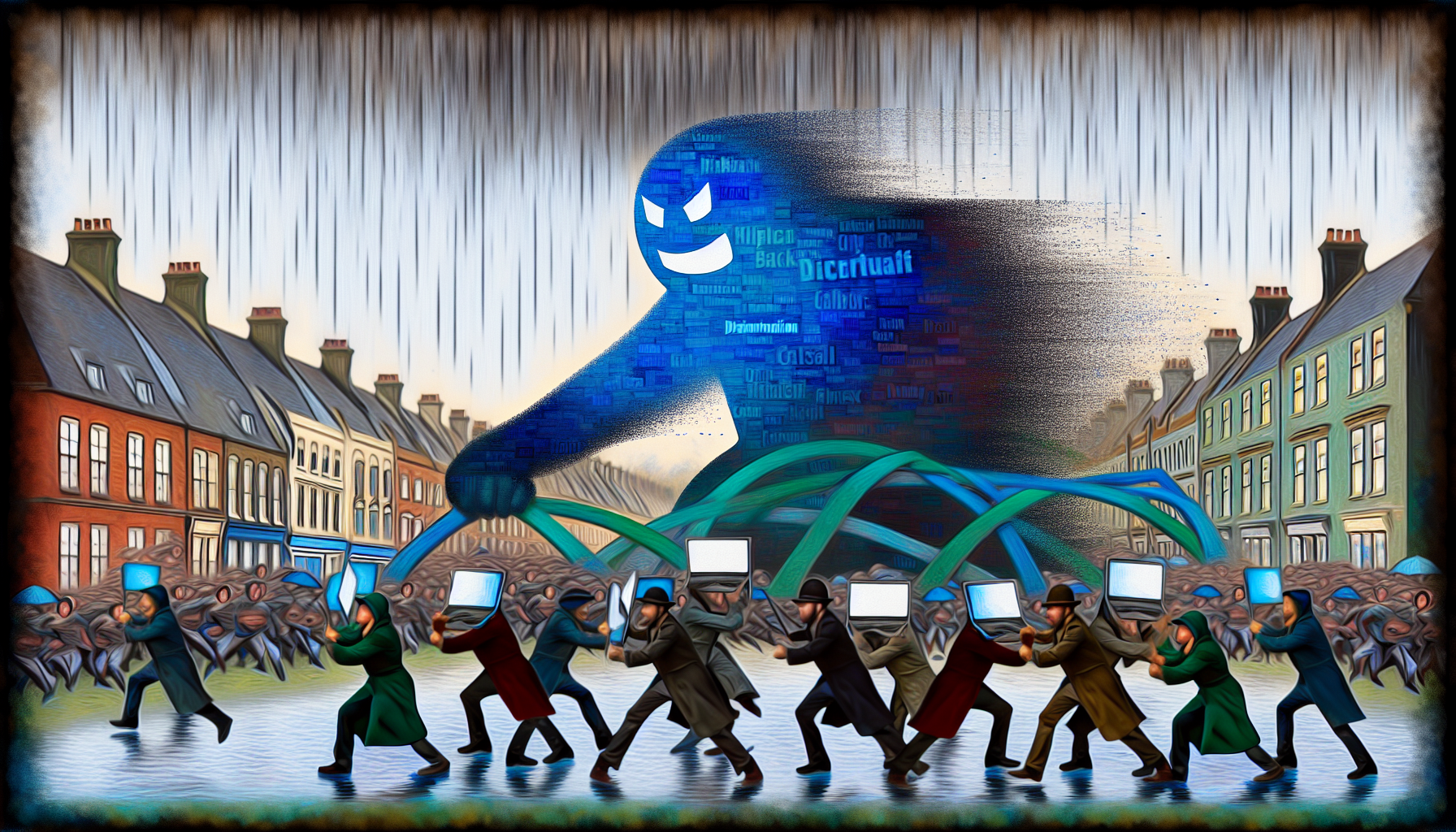Online disinformation has been the unforeseen trigger of recent riots in the UK – a grim testament to the startling power of the web to influence real-world events. As it fanned flames of unrest, calls for regulatory action have grown ever louder. However, the question remains whether authorities could or even should act upon it.
Online disinformation and its impact on UK riots
The recent occurrence of civil unrest in the UK has provided a stark reminder of the critical influence of online disinformation. This comes as no surprise, given the massive proliferation of internet use in the past decade and the misuse of platforms by bad actors. Unverified news spread like wildfire across the digital landscape, causing fear, confusion, and chaos. Despite the repercussions, regulatory authorities were left with their hands tied, unable to step in and control the rapid spread of false information.
This scenario has become increasingly common in our hyper-connected world. The power to disseminate information — and disinformation — now rests in the hands of anyone with an internet connection, causing difficulties in discerning facts from falsehoods. While technology has, unquestionably, played a transformative role in information dissemination, it also poses new challenges, especially concerning the spread of lies that could incite widespread unrest.
Failing to address this issue will only make society more susceptible to the potentially dire consequences of misinformation and conspiracy theories. Measures are required to combat online disinformation and educate users about its perils.
Overcoming the challenges in regulating online disinformation
The question of how to control online disinformation is complex, mired as it is in debates over free speech, censorship, and the role of tech companies in regulating content. For instance, one might argue that robust internet regulation could infringe on people’s right to free expression. On the other hand, the absence of any form of control leaves the door open for the propagation of false narratives, potentially leading to destabilizing events like the recent UK riots.
It seems like a catch-22 situation. Full-on censorship isn’t the solution, though. What’s needed, instead, is an intelligent combination of education and regulation. Internet users need to be educated to help them separate fact from fiction, while regulations should be put in place to deter the intentional spread of misinformation.
For regulators, the situation is particularly tricky. Traditional laws need rethinking, as the rules of the game have dramatically changed in the digital age. The main challenge lies in creating legislation capable of identifying and controlling misinformation, without stifling the freedom of users or endorsing censorship.
Time is of the essence. The UK riots provide a clear signal for regulatory authorities worldwide to acknowledge the potential ramifications of online disinformation. The right policies implemented now could prevent a repeat of such incidents.
Current discussions to tackle this issue involve working alongside tech companies. These organizations, after all, have broad access to the online community and, therefore, a significant role to play in controlling the content that circulates on their platforms. But remember, it’s a tight walk over a slippery slope, as this collaboration should not infrive the democratic values we all hold dear.
Although the road to a solution might be tough and filled with obstacles, addressing online disinformation is crucial. It necessitates an international cooperative effort, including legislators, tech firms, educators, and, most importantly, us, the users. We must be cognizant of the role we play in the informational ecosystem and always strive to be responsible digital citizens.
The recent UK riots fueled by online disinformation were regrettable, underlining the urgent necessity for tailored intervention. If it’s something we can all agree on, it’s that inaction simply isn’t an option. It is our collective responsibility to ensure the web remains a safe and reliable space for sharing information, rather than a tool for sowing chaos and sparking civil unrest.
Liam Nguyen is a tech enthusiast and writer with a genuine passion for all things related to technology and the web. At the age of 32, Liam has already carved out a niche for himself as a go-to source for insights on emerging tech trends, gadget reviews, and practical advice for navigating the digital age. With a Bachelor’s degree in Computer Science from a well-known tech university, Liam combines his technical expertise with a clear, accessible writing style.
Starting his career as a software developer, Liam quickly realized that his true calling was in demystifying technology for the masses. He transitioned to tech journalism, where he now serves as a contributor to a popular online technology news platform. In his articles, Liam covers a broad spectrum of topics, from the latest smartphone releases to in-depth guides on cybersecurity, aiming to keep his readers informed and ahead of the curve.
Liam’s approach to writing is grounded in the belief that technology should empower and connect people. He has a particular interest in open-source projects and the democratization of technology, themes that frequently appear in his work. Liam’s ability to explain complex technical concepts in an engaging and straightforward manner has endeared him to a diverse audience, from tech aficionados to novices looking to get the most out of their devices.
Aside from his written work, Liam is active in online tech communities, participating in forums and social media discussions. He’s also been known to guest lecture at his alma mater, sharing his journey and inspiring the next generation of tech enthusiasts.
Liam’s dedication to the tech community and his knack for clear communication make him an influential voice in the tech and web category, always eager to explore how technology can make our lives better and more connected.

